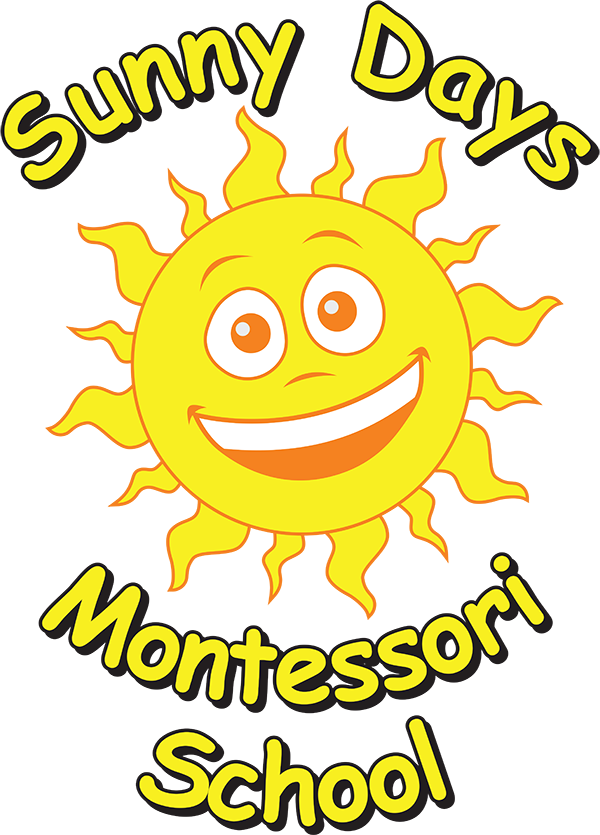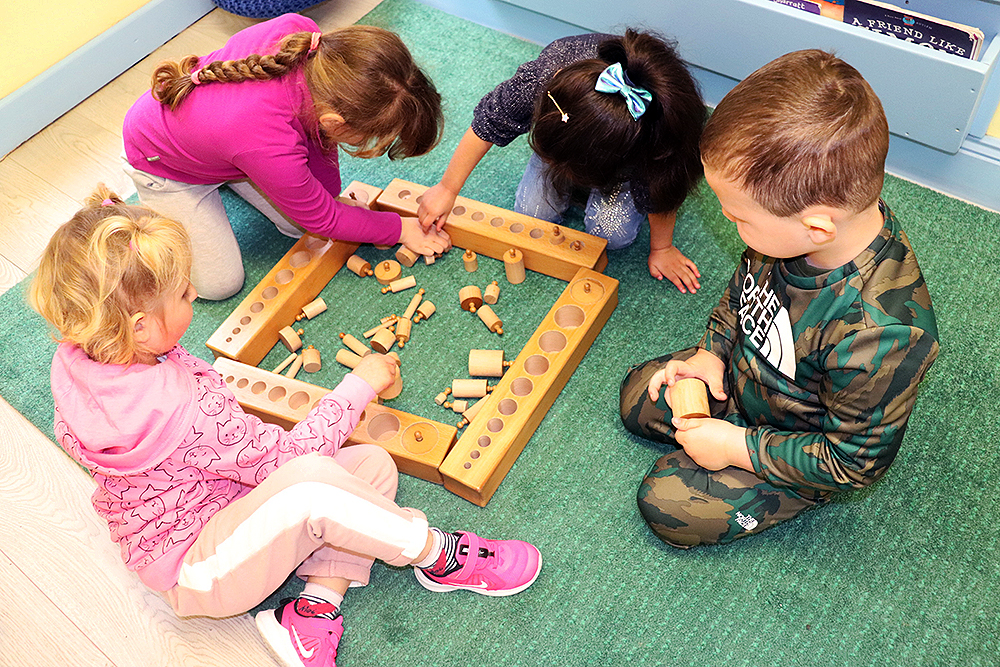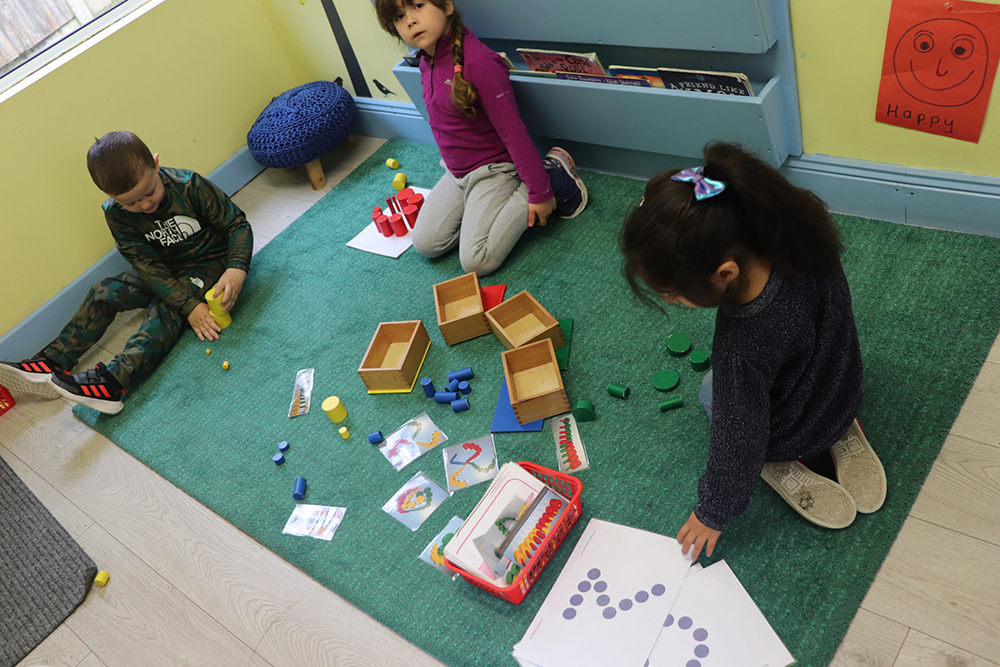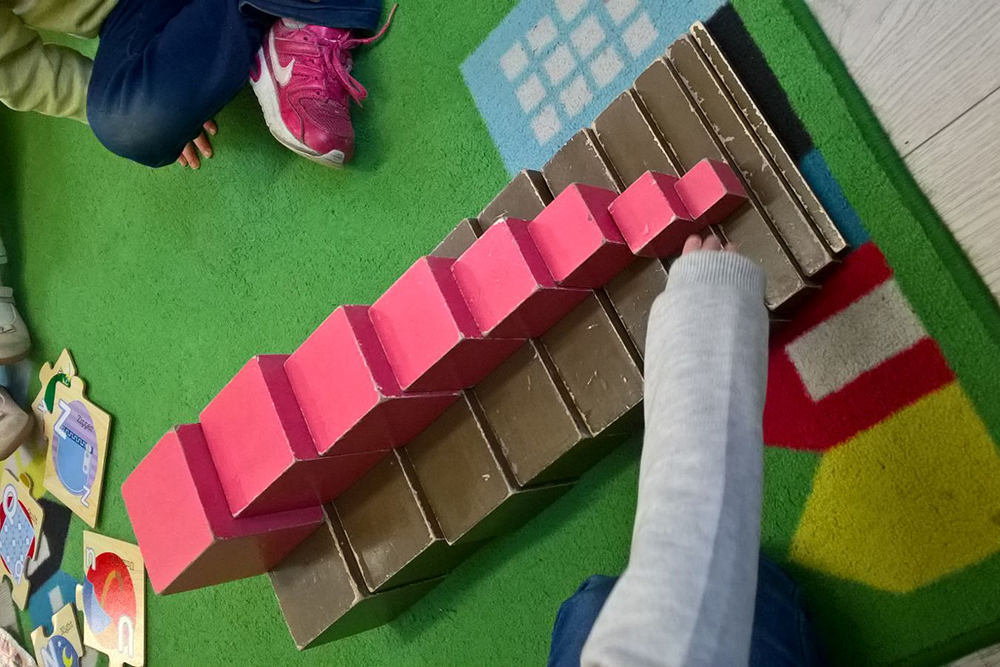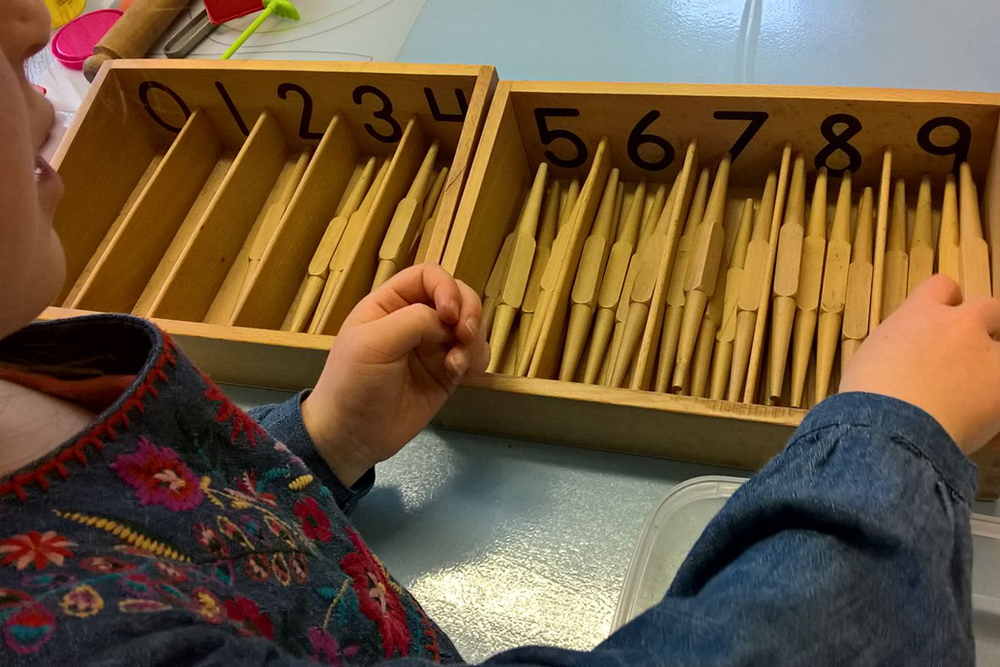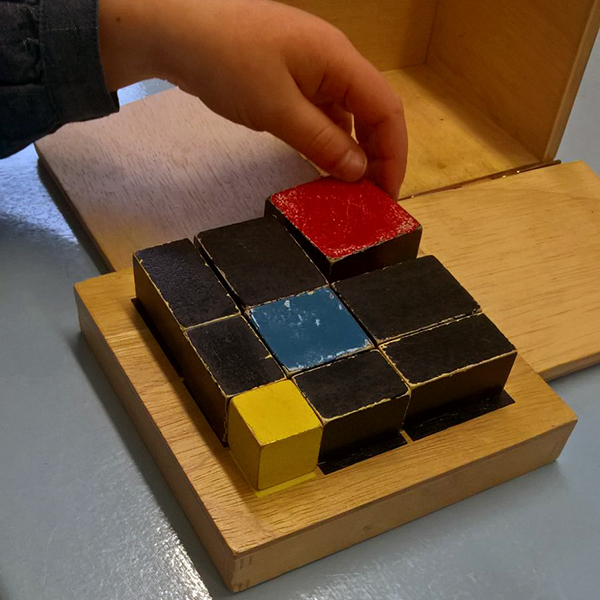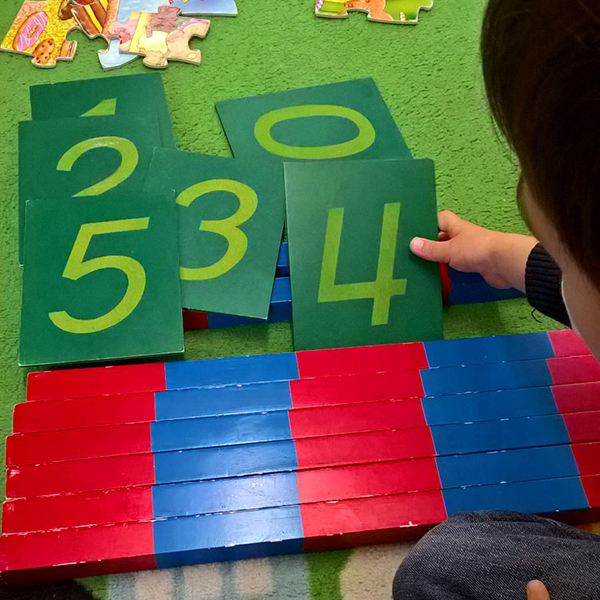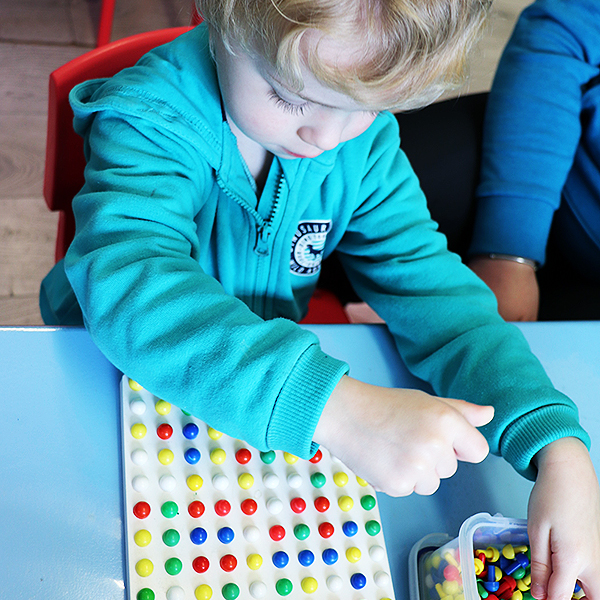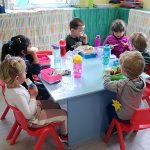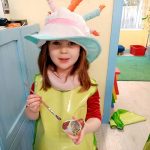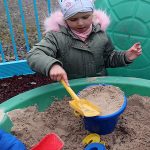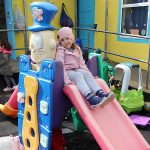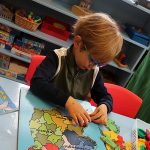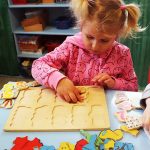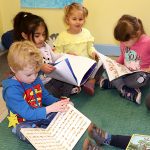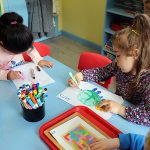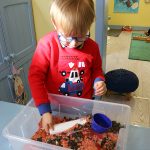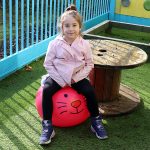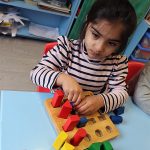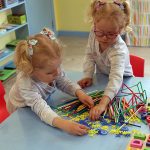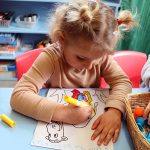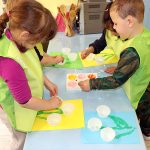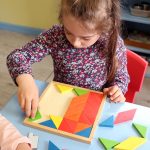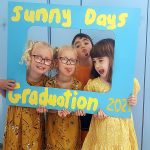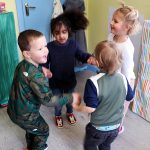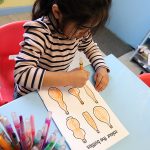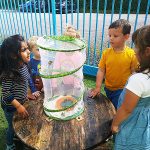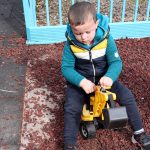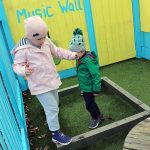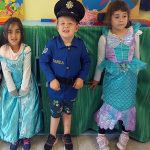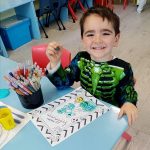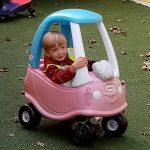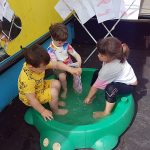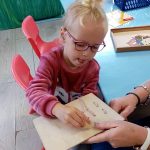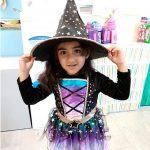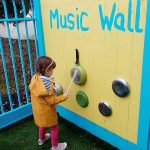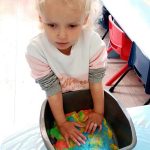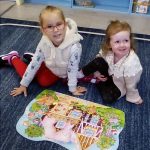Sunny Days provides a Montessori curriculum for children from aged 2 years+.
Our service caters for up to 44 children at any one time and the type of service we currently provide is defined in the Childcare (Preschool Services) Regulations 2006 as sessional.
We follow all recommended policies and procedures under the Department of Education regulations.
Sunny Days will ensure that their admissions policy is adhered to at all times, and the service provided will be in line with Childcare (Preschool Services) Regulations 2006 and the needs of the local community.
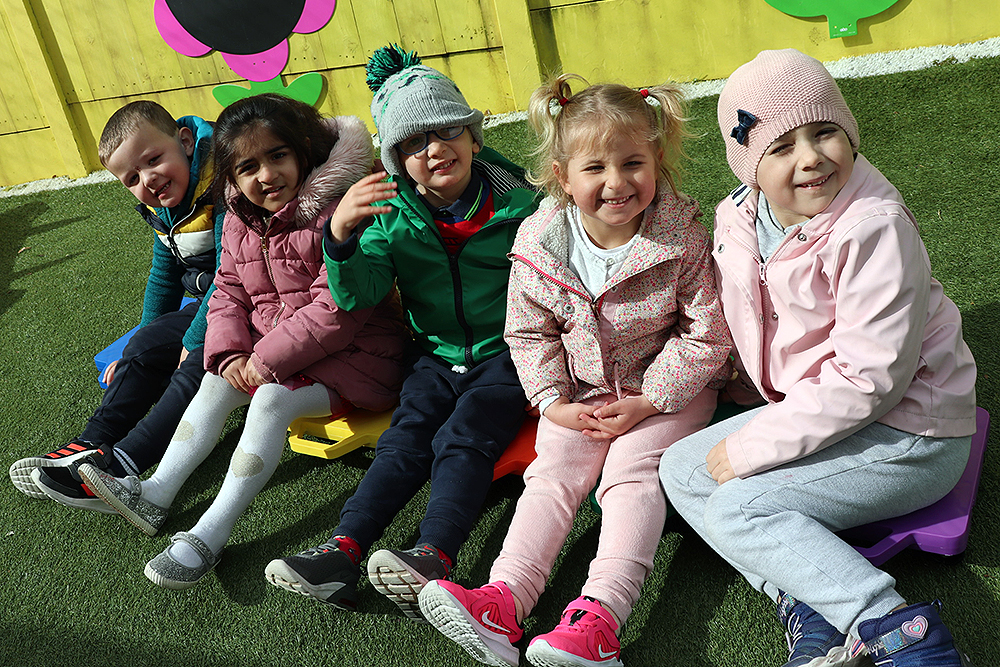
Our Service
We are open Monday to Friday from 8:45am – 12:15pm and 12:30pm – 3:30pm for 38 weeks of the year, closing for midterms, Christmas, Easter and the summer holidays.
We offer the FREE pre-school sessions for children qualifying for the ECCE scheme and children eligible for the NCS scheme.
Children from 2 years can attend our playschool. Our curriculum allows the children to learn through play while experimenting with sand, water play dough, the use of colours, numbers, sounds and various arts and crafts. The activities encourage their creative, emotional, social and physical development.
"Education is a natural process carried out by the child and is not acquired by listening to words but by experiences in the environment."
Montessori
The aim of Montessori Education is to prepare the child for life. The teacher introduces to each child the skills and qualities necessary to live life to the full in an independent, safe and happy way. It also develops the child to their full potential. In the Montessori classroom, the children explore the world through their senses and their own activity. They develop a love of learning and enjoy working, which hopefully will stay with them throughout life.
Montessori is an education for life, a prepared learning environment, and is about learning to balance responsibility with freedom of choice. It offers children the opportunity to realise their potential, in a non-competitive environment and seeks to promote in them:
- Self-confidence and self-esteem
- A sense of responsibility and self-worth
- A sense of responsibility for themselves and their actions
- Independence and adaptability
- Co-operation with others
- A sense of community respect for the rights and needs of others
- Concentration and persistence in completing a task
- Initiative and self-motivation
Our early years learning environment is well planned and allows for choice and self-directed play. The curriculum should promote independence and problem solving and prepare children for school. Our childcare staff at Sunny Days will ensure that children are given opportunities to participate in a variety of activities including:
- Language/library
- Maths- early counting, weighing, volume etc.
- Dramatic play
- Art and creative expression
- Sensory – sand, water, etc.
- Science and discovery
- Music and movement
- Physical and active play
- Outdoor play
The Montessori Curriculum
The Montessori approach was designed to help children grow by letting them explore the world. The classrooms are called “prepared environments” where children a given an array of stimulating learning and purposeful activities
The Montessori Curriculum is based on the research and findings of Dr. Maria Montessori (1870- 1952). Montessori’s method is structured around, and promotes, the child’s natural, self-initiated impulse to become absorbed in an environment and to learn from it. Based on her observation Dr. Montessori developed specific materials techniques and curriculum areas that assist each child in reaching his/her potential.
In Montessori classes the children follow a set programme of tasks or exercises. They learn everyday life skills such as dressing themselves, washing themselves etc. They learn social graces and manners but also cover a wide range of subjects including Mathematics, Reading and Writing, History and Geography, Science, Biology, Music, Irish, Art, Drama and Literature. Subjects may vary slightly.
Montessori Curriculum areas we practice
The Practical Life section lays the foundation for all other work to be done in the classroom. The activities are everyday tasks that a child needs to learn to master the care of self and care of the environment. Such activities include pouring, sweeping and tying, as well as courtesy. The activities are presented to the child in such a way that concentration, coordination, independence and order are developed.
The goal of the Montessori Sensorial Section is to educate the child’s senses. The curriculum area contains Montessori-specific materials that help the child refine his or her experience of sight, sound, touch, taste and smell. In addition, the materials of this section are modelled on scientifically based concepts. Sensory experience, with these specially selected materials provides children with the first step in understanding abstract concepts.
Maths in the Montessori classroom can be separated into a few major categories: beginning counting, advanced counting, the decimal system, rational numbers (fractions) and the operation of addition, multiplication, subtraction and division. Concepts are presented in a very concrete way so that children are not only able to count but work with square numbers and thousands.
Montessori language curriculum is an integrated approach that combines phonetics and whole language. The child is introduced to letters and sounds. After several sounds, he can begin to spell and read words by linking these sounds together.
This topic integrates geography, history, Science art, music etc. The children study different areas of the world, and experience concrete examples of that area’s language, literature, dress, food, artwork and music, both past and present. This increasingly important area introduces that child to our planet’s great diversity of people.
Topics and Themes
We develop themes and topics of interest to the children and explore these through art, stories, food etc.
Trips and Outings
Trips and outings are also included, when appropriate, to widen children’s experiences and give them a sense of community.
Active and Quiet
Children should experience a combination of active and quiet time.
Everyday Experiences
Staff should use everyday experiences to extend children’s learning – Arrival Time, Settling-in Time, Meal/Snack time, Toileting and Hygiene Time.
"As soon as children find something that interests them they lose their instability and learn to concentrate."
At Sunny Days Montessori School, we encourage learning through free play with a range of activities including:
Imaginative Play
The children learn to play together, to share, to use their imaginations and to expand their vocabulary. This type of play encourages children to express their feelings and engage in imaginary situations such as doctors and nurses and going to the post office. This is a safe secure environment where children feel supported in their play.
Books
The children learn to listen when a story is being read. Acting out or reading stories and describing incidents from their own experiences helps to develop their language. Story telling is an activity, which fosters the enjoyment of books, and can be a motivating factor in learning to read.
Music Activities
Studies have shown that music has a powerful effect on the intellectual and creative development of children and creative development of children to:
- Inspire right-brain, creative thinking
- Induce relaxation
- Improve concentration and memory
- Increase verbal emotional and spatial intelligence
The children enjoy singing songs, using percussion instruments and listening to a wide variety of music, from rhymes to classical and pop music. This helps to stimulate their awareness and enjoyment of music and gives them an opportunity to use music as a form of expression.
Creative Play
Children are introduced to activities such as Art and Craft, paint and play dough, sand and water play.
Sand and Water Play and sensory boxes
Children have great fun, but they also develop manipulative and pre-math’s skills through exploring and experimenting. Many children can express their emotions and feelings when playing with sand and water as well as finding it a very relaxing and soothing activity.
Arts and Crafts
The children paint, draw, print, use scissors, glue and use clay. This allows the children to develop their creative and pre-writing skills. All this work gives the child a different medium to express their feelings, thoughts and emotions.
Play Dough
This is not just a fun activity for children; it can also help strengthen muscles in their hands and develop hand eye co-ordination. Once again this is an activity where the children’s imagination can be encouraged and developed. Play dough also allows the child to manipulate the material, which may relieve such emotions as anger/frustration.
Jig Saw Construction and Manipulative Toys
In this area children’s pre-reading pre-writing, hand eye co-ordination are developed. The development of reasoning and problem solving is also developed and encourages small motor movement.
Energetic Play
Organised energetic activities, such as running, jumping and skipping, will be a part of the Curriculum and encourages large motor movement. As well as aiding physical growth such activities can be a learning area and a great reliever of built up stress or tension.
Drama
Through drama the children learn self-expression and it instils an inner confidence within themselves. Children enjoy drama and it gives them the opportunity to experience the freedom to express their feelings and emotions in a free, comfortable and safe environment.
Mindfulness / Yoga
In Sunny Days we are very conscious of the power of mindfulness in children’s mental wellbeing, We practice regularly and see the benefits of calming, regulating emotions and soothing anxiety. We practice Yoga on many a rainy day when we cant go outside and reek the rewards from stretching and breathing. We believe in building children’s confidence in any way possible and encourage the use of affirmations for children to recognise their strengths and attributes.
Multi-lingualism
Ireland, like many other countries is bi-lingual and our Irish language forms the basis of our unique culture. More than half the population of the world speaks more than one language. Educationalists believe that a multi-lingual education can give children many positive advantages. It helps to develop mental agility, keenness & alertness, and it provides the individual with 2 or more windows through which to look at the world. Irish is one of the oldest languages in Europe and we use the Irish language for some our activities within Sunny Days.
Not alone Irish, but we have many children in Sunny Days attend each year having something other than English as their home or first language. Many children are hearing English for the first time when they attend Sunny Days and many children may be tri-lingual, bi-lingual or non-verbal. For this reason, at Sunny Days we use a lot of photos, gestures, signs and illustrations in our communication.
Over the years we have had children attend with parents from over 40 countries including Albania, Spain, Poland, Hungry, Lithuania, China, Mexico, Germany, France, Italy, Russia, Egypt, Thailand, India, Pakistan, Sudan, Nigeria, Malaysia, Georgia, Latvia, South Africa, Lesotho, Iran, Vietnam, Haiti, Australia, Canada, New Zealand, Portugal, England, Cyprus, Korea, Ethiopia, Turkey, Brazil, Moldova, Croatia, Lebanon, Cambodia and Estonia.
At Sunny Days we welcome all levels of language and our staff will learn key phrases, numbers etc to help the child adjust and feel welcome in the environment where English is the dominant language.
Children are amazingly resilient and soak up language so easily. Childcare staff understand that language development varies with individual children and that each child’s experience is unique. With such a rich diversity in our classroom we celebrate all cultures, customs and welcome parents in to share some of their special occasions with us.
We have a very inclusive ethos and some staff also have training in Hanen and Lamh, which will assist our children with delayed/ speech difficulties.
Childcare staff at Sunny Days will:
- Provide opportunities for shared experiences through the medium of acting as a basis for conversation and to extend understanding.
- Use verbal and non-verbal encouragement (e.g. a nod and a smile) to prompt continued speech.
- Provide a variety of props – e.g. puppets, books, and posters.
- Provide an environment rich in symbols- e.g. labels, shapes, patterns, and jigsaws.
- Aid children in becoming familiar with concepts such as under/over, behind/in front, before/after etc.
- Encourage conversation in groups of varying sizes, from one to one ¬ through small groups – to the whole group.
- Provide a quiet time to help children to refine their listening skills.
- Use rhymes, songs, and jokes to allow children to play with words.
At Sunny Days we aim to
- develop the child’s listening and communication skills.
- foster and develop the child’s ability to use English.
- foster the child’s confidence in English and to develop their sense of pride in the language.
Special education / additional needs
With over 24 years of experience, Ciara has worked with children of all abilities and needs. All children are welcome in Sunny Days and now with the added support of AIM funding children are able to get added support and resources.
It is often the case that teachers may be the first to see areas of developmental delay or specific areas of additional needs in a child.
All Sunny Days staff are well educated in the area of additional needs and carry out many different observations to ensure children are meeting developmental milestones. We share our findings with parents and assist them in seeking support if required be it speech and language, occupational therapy, assessment of need or social support. Confidentiality is of utmost importance at all times in Sunny Days.
"Every student can learn, just not on the same day, or the same way."
High Scope
The High Scope educational approach is based on the belief that young children build or construct” their knowledge of the world — they are “active learners.” This means learning is not simply a process of adults giving information to children. Rather, children discover things through direct experience with people, objects, events, and ideas. They learn best from pursuing their own interests while being actively supported and challenged by adults.
High Scope practitioners are as active and involved as children in the classroom. They thoughtfully provide materials, plan activities, and talk with children in ways that both support and challenge what children are experiencing and thinking. High Scope calls this approach active participatory learning — a process in which practitioners and children are partners in the learning process. The goal of promoting active learning is reflected in every other aspect of the curriculum.
Active participatory learning has five ingredients which must be present:
Abundant supplies of interesting materials are readily available to children. Materials are appealing to all the senses and are open ended — that is, they lend themselves to being used in a variety of ways to expand children’s experiences and stimulate their thought.
Children handle, examine, combine, and transform materials and ideas. They make discoveries through direct hands-on and “minds-on” contact with these resources.
Children choose materials and play partners, change and build on their play ideas, and plan activities according to their interests and needs.
Children describe what they are doing and understanding. They communicate verbally and nonverbally as they think about their actions and modify their thinking to take new learning into account.
“Scaffolding” means adults both support children’s current level of thinking and challenge them. Adults encourage children’s efforts and help them extend or build on their work by talking with them about what they are doing, by joining in their play, and by helping them learn to solve problems that arise.
